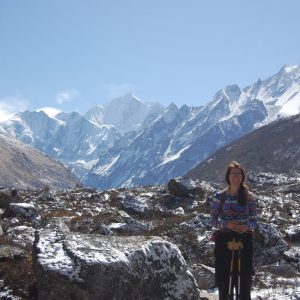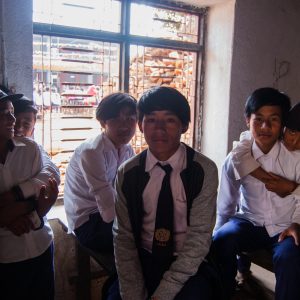There is a pressing issue facing Nepali society, but I was never really that interested in it: Over 10% of Nepalis (and over 50% of young men) are currently working abroad. In addition to the “brain drain”, where Nepal’s brightest minds go to live permanently in other countries, many low skilled workers are attracted to the relatively higher pay offered by Gulf countries and countries in east Asia. Workers abroad earn twice or three times what the same job would pay in Nepal. 33% of Nepali GDP comes from foreign workers sending money back to Nepal. While the financial benefits are clear, many Nepalis are unaware of the horrible working conditions awaiting them. Many, if not most, face abysmal working conditions with dangerous jobs and long hours. Their passports are often confiscated so they can’t return home, and 1 in 500 Nepali workers will die due to the poor labor conditions abroad.
I had seen this in my own village. A young man, age twenty, returned home in a body bag less than a month after he had arrived in the Gulf country where he was working. A man I was next to on the bus one time spent the entire time talking about how excited he was to be going abroad to be a chef at a restaurant. When he showed me his visa (which was written in only English, a language he doesn’t know) his occupation was listed as “household cleaner” – very different than the head chef position he thought he was signing up for. The salary listed in English on his offer letter was also different than the one he told me in Nepali.

This issue has recently become deeply personal, however, because three of the young girls I knew most closely left a week ago to work at an Indian casino. Someone from the village, who has been living in India for several years, recruited them. Finding work outside of the difficult and unstable farm work for girls is very difficult, and they were attracted by the salary and relative “ease” of the job (service work is considered easier and more desirable than farm work).
I’m naturally very concerned for their safety, but they and their families made a decision as well informed as could be expected, given the lack of access to information regarding the realities of life abroad for young Nepalis.


